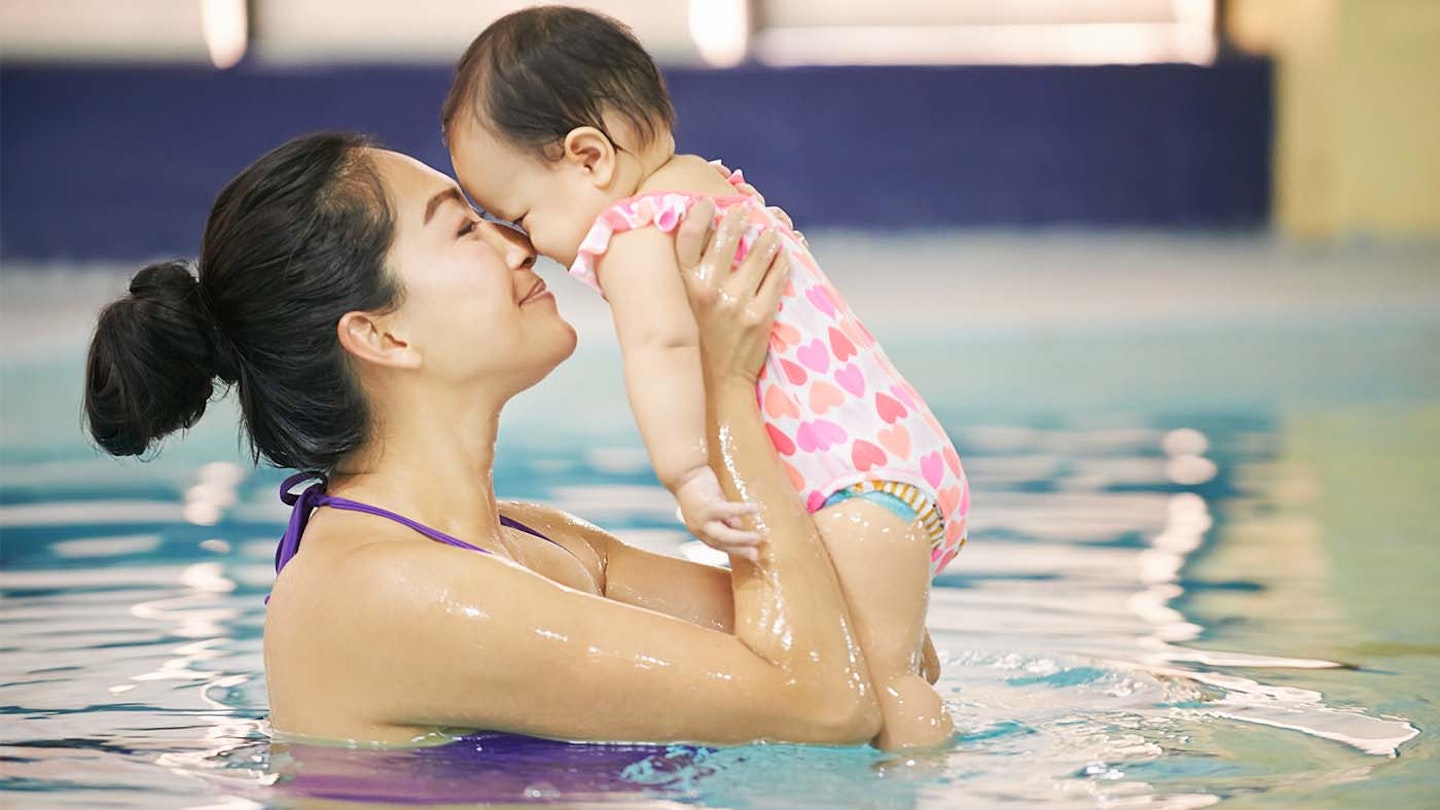What your baby wears while swimming for the first time depends on where exactly they will be doing it, but there is a range of swimwear for your baby that you can choose from. If you are splashing around at a leisure pool, it's likely the pool will be heated to an adequate temperature and a swim nappy may be all that is required.
But if you're spending the day outside in a paddling pool, at the seaside or on holiday, your baby will require something like a wetsuit to protect their delicate skin from the sun.
What should babies wear for swimming?
Reusable or disposable swim nappy
A swim nappy is essential for babies that aren't potty-trained. Unfortunately, regular nappies are unsuitable as they will get waterlogged so instead, you should choose between a disposable swim nappy or a reusable swim nappy.
You'll want a swim nappy that prevents leakage and will allow your child a full range of movement in the water.
Swimsuit or wetsuit
Up until the age of two, children cannot regulate their temperature and they can get chilly without realising when in the sea or pool. This is why a swimsuit or wetsuit made from neoprene: a quick-drying, insulating fabric, is the best choice for your youngster.
Some baby swimsuits have a nappy built-in, while others are worn over the top of a swim nappy.
If your baby is going to be swimming outside, you'll want to look for something that is long enough to cover their arms and legs and offers UV or UPF protection from the sun.
Other baby swimming buys
• A soft towel or towelling dressing gown.
